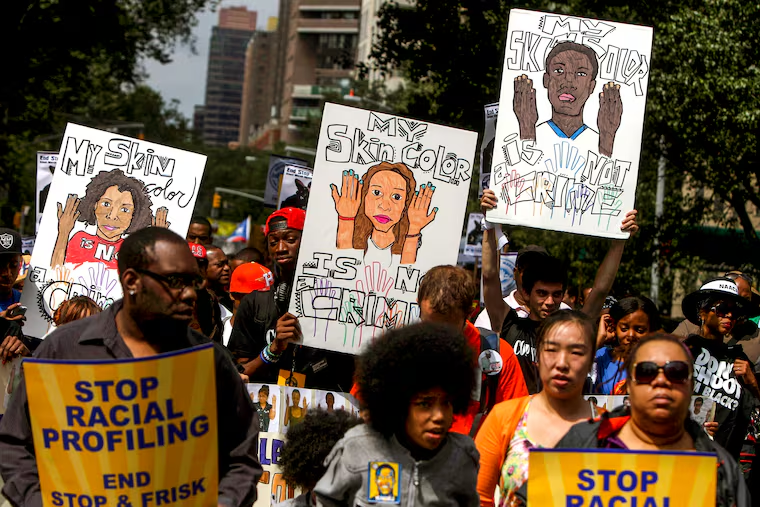As fear grips our city, I understand why some are calling for the return of stop-and-frisk
I disagree with the practice. But in an environment where guns are prevalent, I see how some consider the controversial tactic as a way to preserve our community’s future.

When I learned that a group of children and teens attacked and killed a 73-year-old man in North Philly, I was angry. I was hurt. I was desperately scrolling through memories of my years in North Philly, searching for the answer to a single, nagging question: Why?
Why were children so young outside at 21st Street and Cecil B. Moore Avenue at 2:40 in the morning? Why would their parents or guardians allow this? Why have some elements of my former community deteriorated to this point?
As a teen, I lived at 25th and Oxford — just blocks from where James Lambert Jr. lost his life to kids young enough to be his great-grandchildren. Back then, the neighborhood was Black and impoverished. But many of those who lived there were hardworking people who toiled to maintain a sense of community. And while the area was peppered with byproducts of racism and government neglect, there were also standards. You respected your elders. You shared what little you had. Parents looked out for all children, even if they were not their own.
Clearly, this is a different time, but I am praying that we can capture the spirit of Sankofa — a word and symbol derived from the Akan people of Ghana. It means that we must learn from the past to ensure a strong future.
» READ MORE: Why the war on gun violence is also a battle against systemic inequality | Solomon Jones
There has been much talk of the past lately. Gun crime and other violence have prompted Council President Darrell L. Clarke and Councilmember Cherelle L. Parker to call for the return of stop-and-frisk — a policing tactic that involves searching people on the street. Once widely used in some large cities, the practice was all but abandoned after a federal judge in 2013 found that the tactic violated the constitutional rights of Black and brown people and was effectively a form of “indirect racial profiling.”
While Clarke and Parker are calling for stop-and-frisk to be used in a constitutional way, meaning that officers would only stop and search people when they have reasonable suspicion that a crime is being committed, the reality is that police have the right to do that now.
When they do, police target mostly Black men, and a 6abc study of Philadelphia stops from 2014 to 2020 showed that when those Black men are searched, police find contraband less than 12% of the time. Perhaps more damning, police were more likely to find contraband on white people, but stopped Black people three times more often. That kind of racial harassment resulted in a federal consent decree which requires court monitoring of Philadelphia’s use of stop-and-frisk.
However, in an environment where people are frightened, where children attack elders, and where guns are prevalent, I understand why Clarke and Parker would try to address the violence through something as controversial as stop-and-frisk. Parker, in particular, has been my neighbor for nearly 20 years, so I know her character, and I know she’s looking to the past in an attempt to fight for our community’s future.
» READ MORE: How my family was reminded of the gun violence that many in the city live with every day | Solomon Jones
All of which brings to mind the literal meaning of the word Sankofa: “It is not taboo to fetch what is at risk of being left behind.”
When children attack elders, our community risks being left behind. When neighbors are divided, our families risk being left behind. When guns are the primary means for resolving conflict, our country risks being left behind.
So, while I don’t agree with stop-and-frisk, I understand why such ideas have been proposed.
But, as we look to the past to preserve what is at risk, the values we embrace matter more than the tactics we employ. We must pass down the importance of hard work to our children, even as we warn them about the evils of racism. We must ingrain in them a sense of respect for their elders, for elders hold the wisdom of the past. We must teach them to share with their neighbors because their fate is tied to those who live among them. We must show them that as their parents, we are responsible not only for ourselves but also for them.
Perhaps, if we do those things, we can change the direction of the violence that has engulfed us, and none of us will have to be left behind.